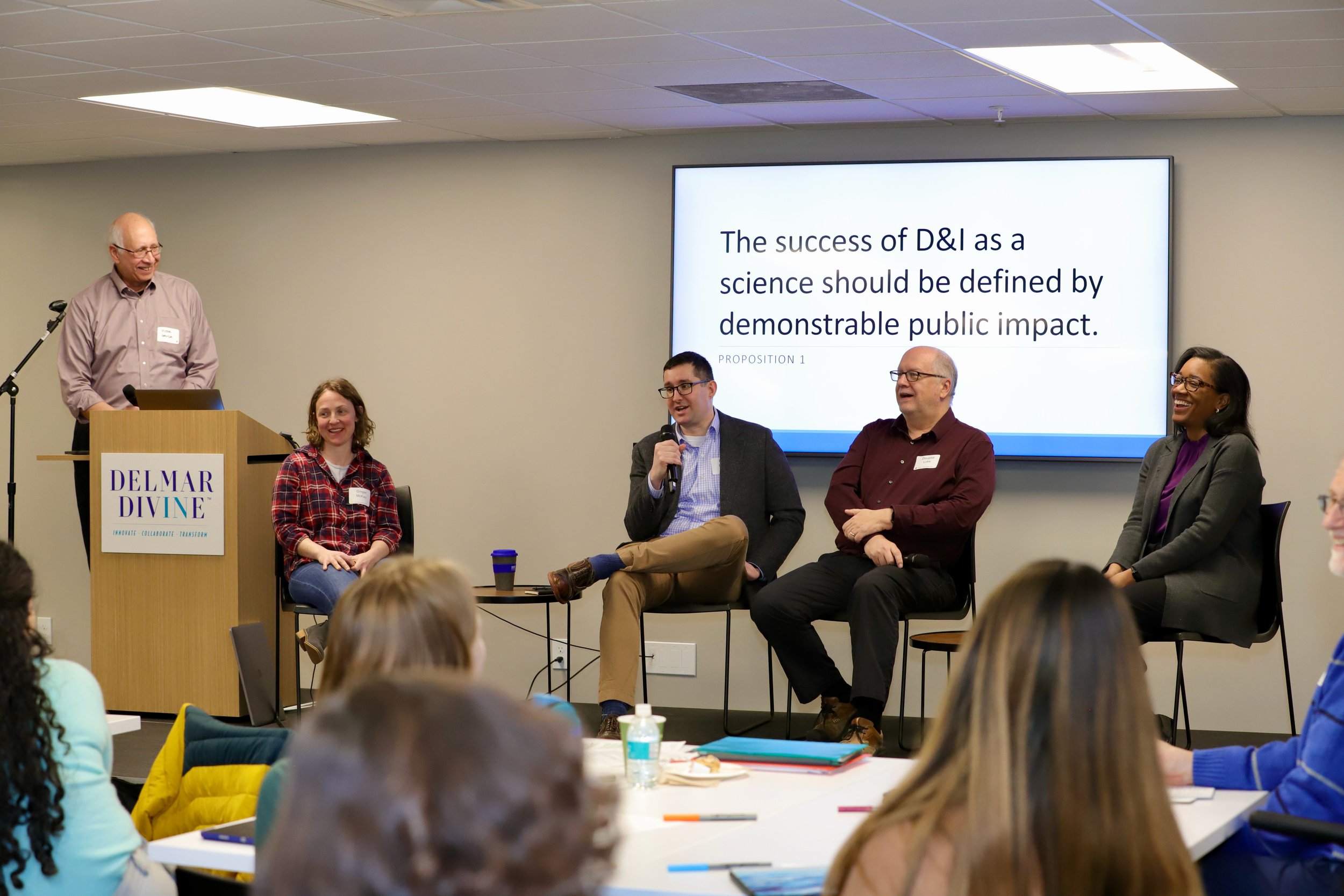
Dissemination and Implementation Science Core
The Midwest D-CFAR’s Dissemination and Implementation Science Core (DISC) aims to leverage dissemination and implementation (D&I) science to optimize the use of evidence-based interventions and advance the adoption and sustainability of HIV interventions, guidelines, and programs. Our greatest barrier for success in ending the HIV epidemic is no longer the availability of evidence-based interventions, but our ability to use them adequately. D&I science speeds the translation of evidence-based research into practice to produce more rapid improvements in health and reduce overall implementation barriers.
To request a service from the D&I Science Core, fill out a request form. You can also email us with questions at disc@midwestdcfar.org.
Core Team
-

Ginger McKay, PhD
DIRECTOR
Washington University in St. Louis | Research: Systems science, implementation science, evidence-based interventions, de-implementation, sustainability
-

Juliet Iwelunmor, PhD
CO-DIRECTOR
Washington University in St. Louis | Research: Crowdsourcing, self-testing, hypertension integration, HPV vaccine, biomedical workforce diversity
-

Anne Sebert-Kuhlmann, PhD
ASSISTANT DIRECTOR
Saint Louis University | Research: Behavior change, community engagement, social accountability, reproductive health
Core Services
Consultation
DISC experts offer consultation to support both established and emerging HIV investigators to access, utilize, and incorporate D&I perspectives and methods into original research. We provide scientific guidance on crucial concepts in D&I (e.g., implementation strategies, outcomes, and frameworks) to help investigators develop rigorous and relevant research and investigator-centered guidance to make use of rich but widely distributed D&I resources in our academic ecosystem. To request a DISC consultation, fill out a request form.
D&I Resource Library
The DISC has curated an online resource page that serves as a key dissemination, collaboration, and communication tool for the D&I community within the Midwest D-CFAR.
Grant Writing Retreat
A grant writing retreat is held in the fall for HIV early-stage investigators and basic and clinical postdoc fellows to provide comprehensive training and foundational tools to write effective proposals. Participants will engage in mini-fishbowl assignments to draft and refine their specific aims page, receiving feedback from the instructor, mentors, and peers. The retreat will offer a deep understanding of the NIH granting process and novel strategies to position their research and themselves to gain support from grant reviewers. Additionally, participants will have access to reference materials on writing effective grant proposals for future use, and they will develop and refine material for an NIH application, with particular attention to content and trends in the HIV research community.
Core Events
D&I Speaker Series
Approximately once a month, the Center for Dissemination and Implementation at the Institute for Public Health at Washington University hosts a seminar focused on a D&I topic for the academic community. Once or twice per year, the DISC co-sponsors the talk, inviting an investigator conducting HIV-related D&I research to present. All D-CFAR members are invited to attend, regardless of institutional affiliation. The speaker series and other D-CFAR events are posted on our event calendar.
Co-Designing Innovations
To enhance academic-practictioner engagement, DISC will host participatory activities focused on co-developing innovative and collaborative research to address Ending the HIV Epidemic priorities in Missouri. We will feature crowdsourcing and innovation challenges, which ask a group of academic and non-academic participants to solve a problem and then share the solutions with the public. Learn more.
